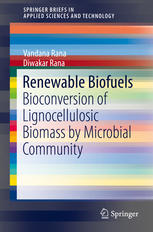

Most ebook files are in PDF format, so you can easily read them using various software such as Foxit Reader or directly on the Google Chrome browser.
Some ebook files are released by publishers in other formats such as .awz, .mobi, .epub, .fb2, etc. You may need to install specific software to read these formats on mobile/PC, such as Calibre.
Please read the tutorial at this link: https://ebookbell.com/faq
We offer FREE conversion to the popular formats you request; however, this may take some time. Therefore, right after payment, please email us, and we will try to provide the service as quickly as possible.
For some exceptional file formats or broken links (if any), please refrain from opening any disputes. Instead, email us first, and we will try to assist within a maximum of 6 hours.
EbookBell Team

4.7
56 reviewsThis book offers a complete introduction for novices to understand key concepts of biocatalysis and how to produce in-house enzymes that can be used for low-cost biofuels production. The authors discuss the challenges involved in the commercialization of the biofuel industry, given the expense of commercial enzymes used for lignocellulose conversion. They describe the limitations in the process, such as complexity of lignocellulose structure, different microbial communities’ actions and interactions for degrading the recalcitrant structure of lignocellulosic materials, hydrolysis mechanism and potential for bio refinery. Readers will gain understanding of the key concepts of microbial catalysis of lignocellulosic biomass, process complexities and selection of microbes for catalysis or genetic engineering to improve the production of bioethanol or biofuel